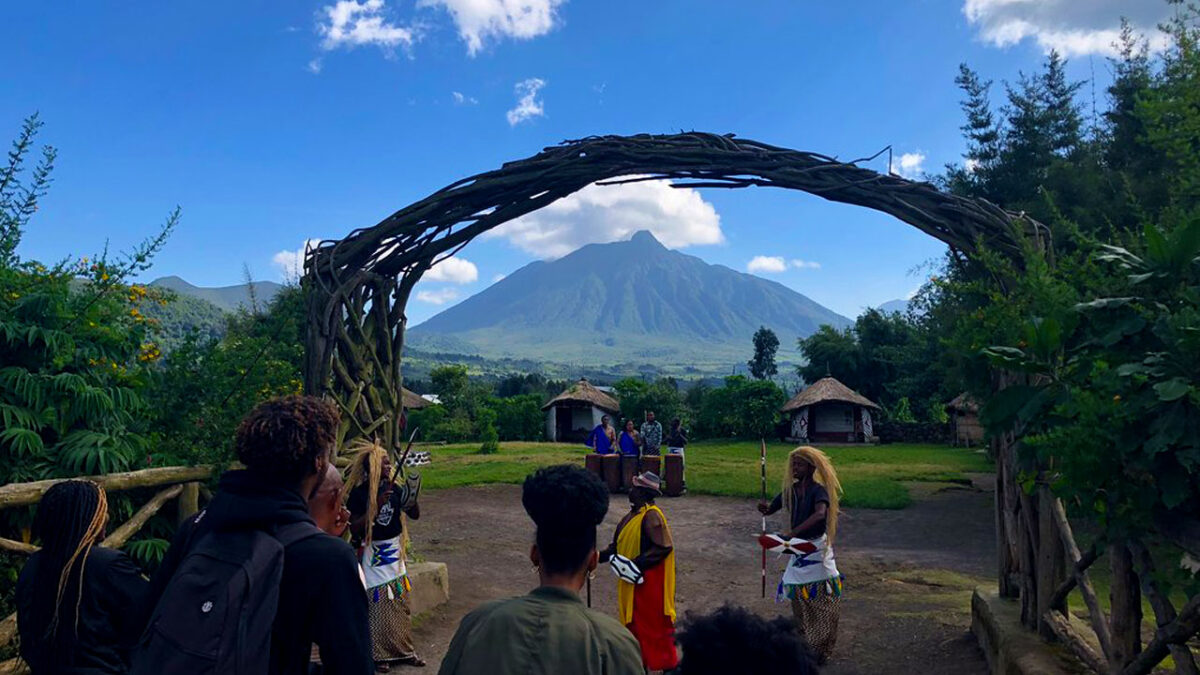- Home
- Ecotours
- Gorilla Safaris
- 01 Day Gorilla Trek – Mgahinga
- 1Day Rwanda Gorilla Trek
- 2 Days Rwanda Gorilla Safari
- 2 Day Bwindi Gorilla Safari
- 3 Days Rwanda Gorilla Trekking
- 3 Day Gorilla Trek Uganda
- 4 Days Double Gorilla Safari
- 4 Day Double Gorilla Uganda
- 4 Days Rwanda Chimpanzee Safari
- 4 Days Rwanda Gorilla Safari
- 5 Day Rwanda Gorilla Adventure
- 7 Day Rwanda Safari Holidays
- 7 Day Uganda Safari
- 8 Days Rwanda Uganda Gorilla
- 9 Days Visit Rwanda Gorillas
- 9 Days Panorama Rwanda
- Tours 2025/26
- Visit Rwanda
- Combo Safaris
- 3 Day Nyiragongo Hike Congo
- 3 Day Rwanda Gorilla & Nyiragongo Hike
- 4 Day Uganda Gorilla – Nyiragongo Hike
- 4 Day Congo Gorilla Trek – Nyiragongo
- 4 Days Rwanda Gorilla & Nyiragongo Hike
- 9 Day Rwanda Uganda + Kenya
- 7 Day Gorilla, Nyiragongo, Lowland Gorilla
- 7 Days Rwanda Gorilla Eco Tourism
- 9 Days Rwanda Uganda Gorilla Tracking
- 9 Days Kenya-Rwanda Gorilla Tour
- 10 Days Kenya-Rwanda Eco Tour
- 11 Days Tanzania-Eco Tours Rwanda
- 12 Day Uganda Rwanda Gorilla Tour
- Gorilla Trek Africa – 13 Days
- Cul Tours
- Lodges
- Rwanda Eco Lodges
- Kwitonda Lodge & Kataza House
- One & Only Gorilla’s Nest Lodge
- One & Only Nyungwe House
- Wilderness Bisate Lodge
- Wilderness Magashi Camp
- Virunga Lodge
- Wilderness Sabyinyo Lodge
- Nyungwe Forest Lodge
- Ruzizi Tented Lodge
- Five Volcanoes Boutique Hotel
- Mountain Gorilla View Lodge
- Le Bambou Gorilla Lodge
- Lapalme Hotel
- Muhabura Hotel
- Congo Eco Lodges
- MICE
- Rwanda Eco Lodges
- Contact Us
- About
- Parks
- Travel
Responsible Tourism to Promote 4 C: Culture, Conservation, Community and Commerce

Exploring Surrounding of Volcanoes National Park
March 21, 2023
What are Safest Places to Visit in Africa?
June 14, 2023Responsible tourism or Eco tours seeks to lessen the adverse effects of mass tourism by ensuring tourism promotes local cultures, protects the environment, boosts the local economy, and involves the local communities in sustainability efforts. It’s driven by an awareness of tourism’s effects on host cultures, economy, ecology, and local people and involves taking strategic steps to lessen these effects.
It takes a holistic approach to biodiversity conservation, community well-being, the promotion and embracing of cultural diversity, and the carrying out of enterprise in a way that does not harm the planet.
The 4C framework recognizes the importance of business viability to secure biodiversity conservation and community well-being in the long term. It equally emphasizes the importance of nature and supportive communities in sustaining nature-based businesses.
In culture, strengthen intercultural relationships and understanding, and safeguarding cultural heritage while raising awareness of cultural diversity. Members enrich each other through their uniqueness and diversity and contribute to a greater common good.
For community, recognize responsibility, as pioneering nature-based businesses, in contributing to lifting communities out of poverty and empowering local people to drive their own sustainable development. They are doing this by providing fair and inspiring working conditions, supporting social services development, education and local enterprises among others.
Commerce: Activities in this area address profitability to ensure a reasonable return for the owners to stay invested in the business and serve a source of reliable business and income for the dependent communities. Profitable operations also enable investing part of the revenues back in the other 4C initiatives.
Conservation: address issues related to biodiversity and ecosystem services as well as management of energy, water, waste, land planning and carbon impact reduction, amongst others
Responsible tourism minimizes the conflict between local communities and tourists by promoting mutual respect for sharing of resources. For instance, when hoteliers introduce recycling equipment to reduce littering and adopt technology that reduces resource wastage, the local community might be inclined to support them or become motivated to join these efforts.
Responsible tourism encourages hoteliers, local communities, and tourists to work together in sustainability efforts that protect current resources to ensure they meet the needs of the current and future generations. By persuading tourists to use eco-friendly transport, responsible tourism protects the environment against pollution.
Responsible tourism can positively affect the local economy by ensuring that money generated from the tourism sector boosts the economy of the host communities. This can be through encouraging tourists to purchase locally made products or purchasing supplies from local businesses that cannot compete with global retailers in securing hotel tenders. Acquiring labour force from local communities and compensating fairly.
Hoteliers, tour & travel companies, restaurants, and bars can only survive in the long-term if there is a responsible use of resources. When natural and cultural resources are exploited or damaged, tourists may lose the appeal to travel to tourist destinations, resulting in less travel that can cause hoteliers to go out of business. By encouraging conservation, responsible tourism guarantees the long-term survival of the hospitality industry.



